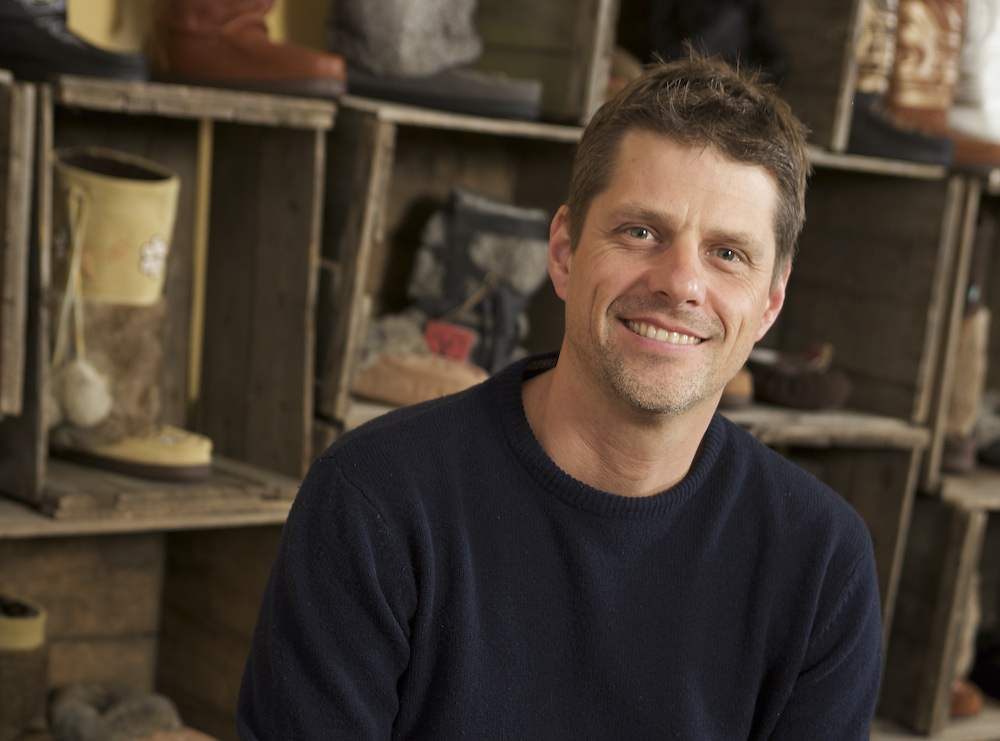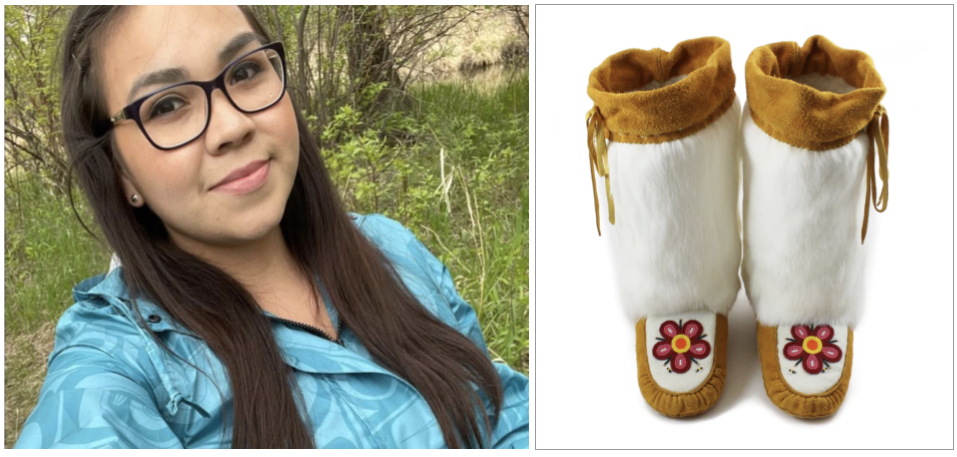
- Details
- By Josh Spanninga, Special to Tribal Business News
- Indigenous Entrepreneurs
When it comes to running a business that creates social impact, Indigenous footwear maker Manitobah has been walking the talk for more than a quarter-century.
This year, the Winnipeg-based maker and seller of mukluks and moccasins reached a new mile marker. In August, Manitobah earned B Corp Certification, designating it as a business that meets high standards of social and environmental performance. In order to achieve B Corp status a company must first undergo a rigorous certification process put forth by B Lab’s Standards Advisory Council.
Metís entrepreneur Sean McCormick, founder and chief impact officer for Manitobah, says securing B Corp certification elevates the footwear firm’s social impact by aligning with B Lab’s governance and sustainability standards.
“We've been acting like a B Corp since day one, but it's good to have someone else say that on your behalf,” McCormick explained. “I think it gives consumers confidence that we're investing in being the right kind of company."
McCormick started Manitobah in 1997 as a manufacturer and wholesaler that primarily sold its products to tourists and souvenir stores. In 2012, the company entered the world of eCommerce to establish a direct-to-consumer channel.
Over the years, the global e-commerce industry has soared to nearly $6 trillion, and the global footwear market has risen steadily to an estimated $398 billion, according to research firm Statista. McCormick's timing was fortunate, but his strategy was born of necessity.
“For a small growing company, opening up a whole bunch of retail stores just wasn't possible with the capital costs associated,” McCormick said. “That was a whole other ballgame that we've since gotten into, but e-commerce really was a sort of democratized way for even small brands to try and reach larger audiences.”
In 2023, McCormick stepped down as Manitobah’s CEO to become its Chief Impact Officer. The move allowed him to focus more time and energy on the company’s social initiatives and to help it obtain B Corp status.
"When you're dealing with a growing business you've got to know what your strengths and weaknesses are as a founder and get people in the right seats so to speak,” McCormick said. “So I think it was a good move overall."
In 2023, Manitobah made progress on its social impact goals, contributing more than $120,000 to Indigenous charities, cultural events and educational workshops.
One of those initiatives is Storyboot School, which celebrates Indigenous culture and teaches participants how to make traditional mukluks. Rhonda Chartrand, an Ojibwe artist from the Sagkeeng First Nation, attended the Storyboot school in 2018. While she was raised on the reserve, she says nobody in her community knew how to make mukluks or moccasins.
“I always wanted to learn how, but a lot of people around here are non-indigenous people that host these classes, so I don't support (them),” Chartrand told Tribal Business News. “I'm not going to pay someone to take a class to learn about my culture.”
In contrast, the Manitobah Storyboot School is free for Indigenous people, and is taught by Indigenous teachers. Next year, Manitobah plans to launch a Storyboot School website, which will feature instructional videos featuring First Nation, Metís, and Inuit instructors. Since graduating from the Storyboot school Chartrand has taken it upon herself to pass the knowledge she learned from the program to others in her community.
“I now teach my own classes back home because I want to teach the kids that have nobody to turn to," Chartrand said.
Chartrand’s work is also featured on Manitobah’s Indigenous Market, an online marketplace featuring mukluks, moccasins, earrings, and other products all created by Indigenous artists. The site is a safe haven for artists amid a wave of counterfeiting of Indigenous art. In 2019, an investigation by the Discourse found that 75% of souvenir shops in Vancouver sold fake Indigenous art.
 Rhonda Chartrand, an Ojibwe artist and alumna of the Storyboot School, preserves Indigenous culture by teaching traditional mukluk craftsmanship in her community. She also sells her work via Manitobah's Indigenous Market. (Courtesy photos)Manitobah’s Indigenous Market only includes artists who have verified their tribal ties, which ensures that customers are purchasing from and directly supporting Indigenous artists. In 2022 the Indigenous Market reached sales of $110,125. While a small percentage of each sale goes to cover shipping and freight costs, the artists receive 100% of the profits.
Rhonda Chartrand, an Ojibwe artist and alumna of the Storyboot School, preserves Indigenous culture by teaching traditional mukluk craftsmanship in her community. She also sells her work via Manitobah's Indigenous Market. (Courtesy photos)Manitobah’s Indigenous Market only includes artists who have verified their tribal ties, which ensures that customers are purchasing from and directly supporting Indigenous artists. In 2022 the Indigenous Market reached sales of $110,125. While a small percentage of each sale goes to cover shipping and freight costs, the artists receive 100% of the profits.
McCormick told Tribal Business News that Manitobah’s social impact programs all stem from the idea that the company has a debt to pay to the Indigenous community.
“We didn't invent mukluks,” McCormick said. “The Indigenous community at large on Turtle Island gives us the permission to work with mukluks, but our responsibility is to make sure that we work in partnership with the community and that they benefit as Manitobah grows.”
Manitobah’s commitment to the community is evident in its workforce—55% of its employees are Indigenous, a stark contrast to Canada’s 3.8% average. The company plans to introduce an Indigenous Advisory Council in 2024 to ensure Manitobah as a company stays true to its roots.
While Manitobah invests a substantial amount of time and money in social causes, that hasn’t hindered its growth. In fact, McCormick attributes much of Manitobah’s success as a business specifically to its commitment to social impact.
“You can do social impact at a high level and you can have high level traditional business metrics like growth and profits and that sort of thing,” McCormick said. “They're not mutually exclusive.”
When a customer knows that a percentage of their purchase is going to benefit the community, it fosters loyalty, he said.
"Getting creative with how we can make things better for everybody, it takes intentionality,” McCormick said. “I think the businesses that do that are the ones that are going to succeed moving forward.”